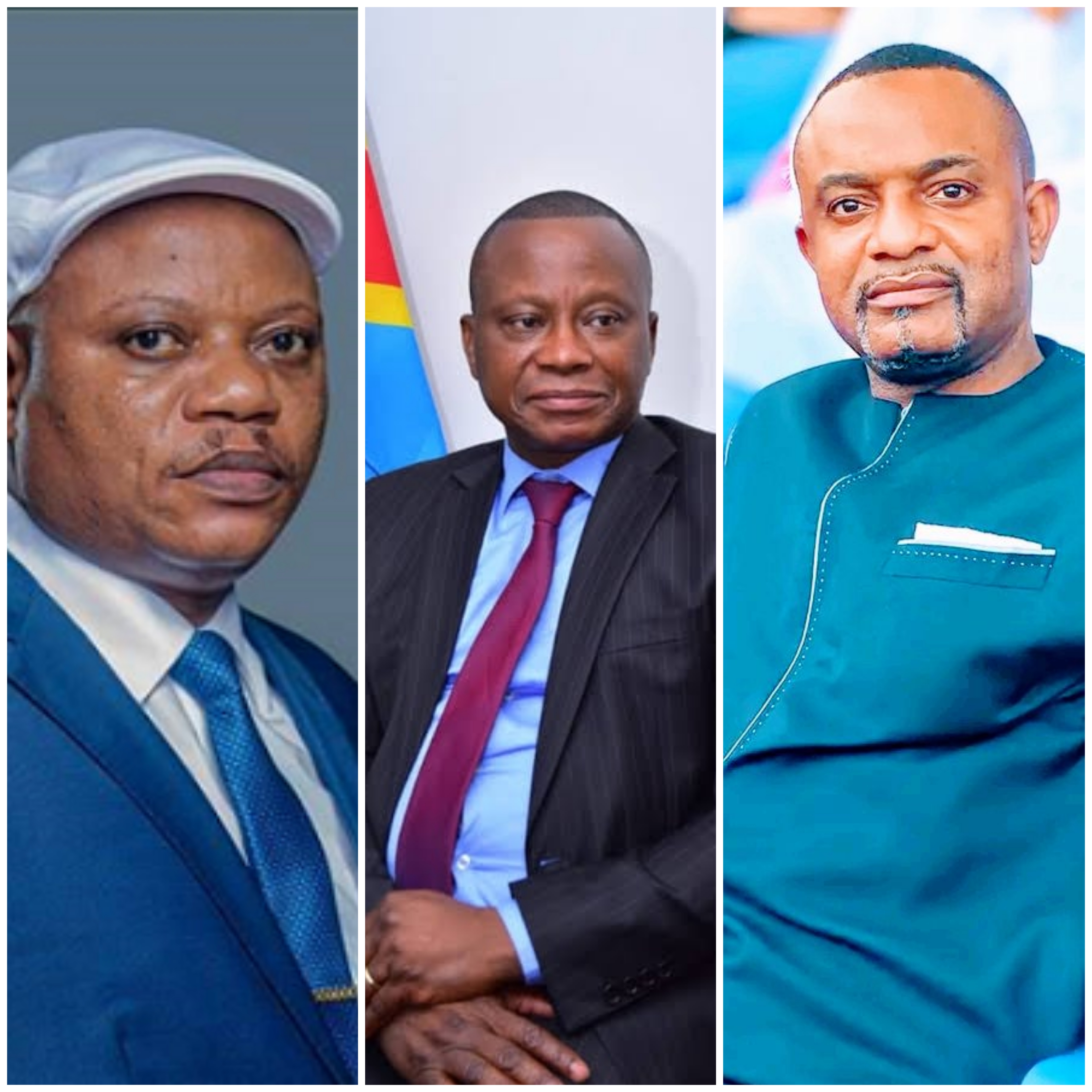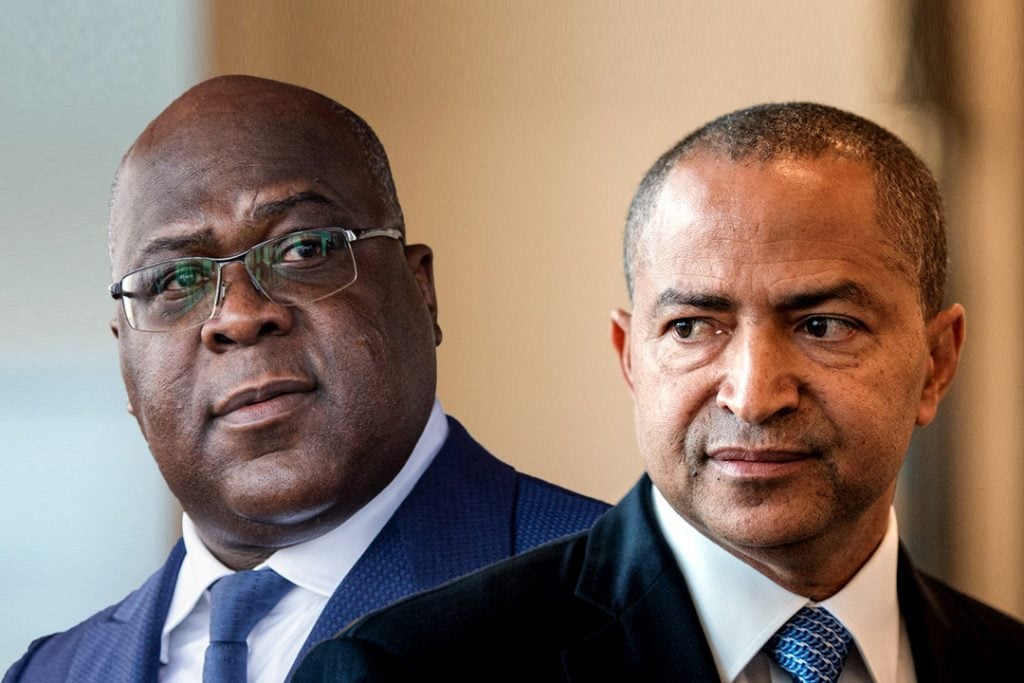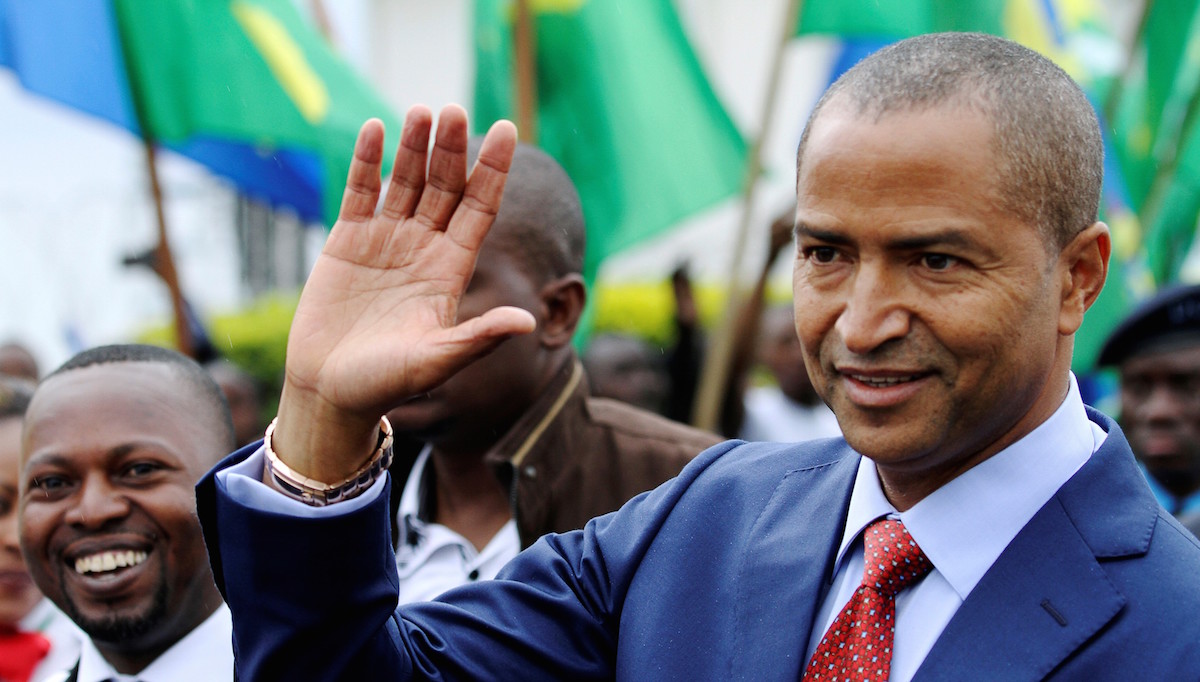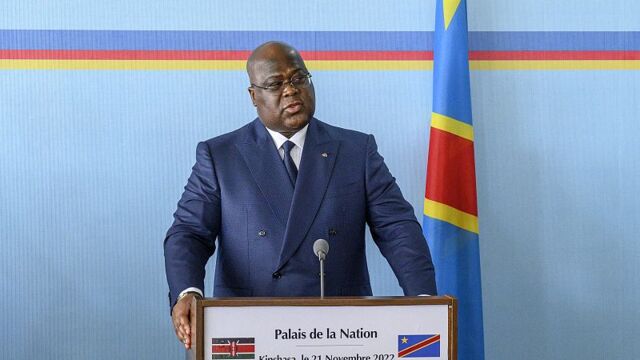Regional
DRC: Anxiety heightens in Kinshasa as anti Tshisekedi rebellion broadens
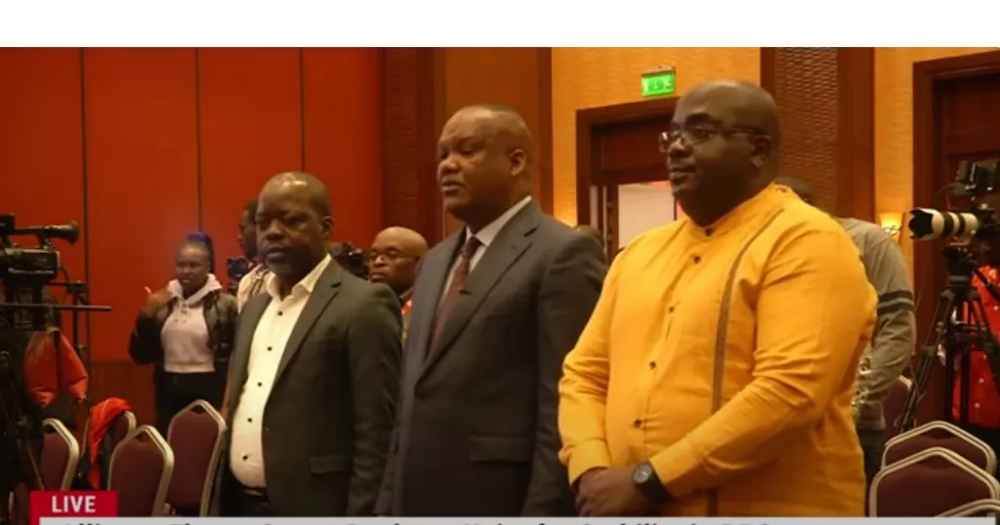
The ex-head of DRC's electoral commission, Corneille Nangaa(in middle) was accompanied by M23 president Bertrand Bisimwa(right) in Nairobi on December 15, while announcing the creation of a new Congolese politico-military opposition platform, Alliance Fleuve Congo (AFC).
The Congolese
government is increasingly stepping in a room of diplomatic isolation following
President Félix Tshisekedi’s misbehavior towards neighboring countries in a bid
to mask his failures.
Tshisekedi,
who is looking for re-election after a five-year term with next to zero
achievements, has invested more efforts in telling his compatriots that he is
’a man of commitment’ who faced bad neighbors.
But the
Congolese know to separate the wheat from the chaff. They are not fools, as Tshisekedi
thinks, to be convinced with his empty rhetoric.
Following
the creation of a new Congolese politico-military opposition platform, Alliance Fleuve Congo (AFC), by
Congolese opposition figure Corneille
Nangaa, in Nairobi on December 15, Kinshasa threatened that Kenya had to face
its consequences.
Nangaa
called for "the union of all political, social and military forces"
to "rebuild the state" and "restore peace" in DRC. The ex-head of DRC's electoral commission,
made the announcement in Nairobi, Kenya, accompanied, in a hotel in the Kenyan
capital, by M23 president Bertrand Bisimwa.
The
exiled politician announced the creation of a political-military alliance with
M23 rebels and other armed groups in order to "save the country."
Kinshasa
turned red.
“We
have just spoken with my colleague [Minister] of the interior and my chief of
staff is instructed to receive the Kenyan ambassador [to Kinshasa] who we will
ask to give us explanations of everything that is happening and if necessary,
we will not avoid expressing our disapproval,” said Congolese Minister of
Foreign Affairs Christophe Lutundula on December 16, while waiting for the summoned
Kenyan envoy.
The
AFC creation in Kenya sparked a diplomatic row between Nairobi and Kinshasa.
The Congolese
government angrily blamed Kenya for the coalition’s creation.
Nairobi quickly disassociated itself from any “utterances
or activities likely to injure the peace and security of the DRC.”
Kenya
stated that it affirms its non-involvement in the internal affairs of DRC and
commits to continue supporting the peace, security, and democratic
consolidation of the country.
Tshisekedi
has been alleging that Rwanda and Uganda support the M23 rebels, which led to
Kinshasa cutting off all forms of cooperation with Kigali.
Kigali
repeatedly denied the allegation and, instead, accused Kinshasa of harboring
and arming the FDLR, a genocidal militia.
Sources
from Kinshasa say Tanzania refused Tshisekedi’s request of collaborating with
him militarily, to strengthen his offensive attacks against M23 rebels.
But Burundi
deployed over 6,000 troops to support the Congolese national army in violating
peace processes initiated by regional leaders to halt insecurity in eastern
DRC.
Anti-Tshisekedi rebellion broadened
Nangaa
was the head of the national electoral commission, CENI, when Tshisekedi
assumed office.
Since
going into political exile in August, he has heavily criticized Tshisekedi,
whose “victory” in the December 2018 presidential election he had declared.
September
saw Nangaa affirming the existence of power-sharing agreement between former
Congolese President Joseph Kabila and Tshisekedi which preceded the publication
of the final results.
“I am
one of its co-authors. This unalterable agreement was signed before witnesses,
by President Tshisekedi and his predecessor", Nangaa wrote; noting that it
was validated and certified by the South African president, the former Kenyan
president and the Egyptian president.
On
December 15, Nangaa openly allied himself with several Congolese rebel
movements, including the M23, to form the AFC project for "national unity
and stability".
The
AFC creation was justified as a response to the weakness of the Congolese state
over three decades and its inability to restore authority throughout the
country.
The
components that joined the AFC include armed groups in different regions including
Ituri, Katanga, North Kivu and South Kivu Provinces.
The alliance
has three political groups, 17 political parties, and 270 personalities. It has
numerous civil society groups including 23 citizen movements and 41 organizations.
Additionally, a hundred organizations from the Congolese diaspora around the
world are supporting the AFC.
Nangaa
said that at least nine armed groups, including the M23, had already joined the
AFC.
While
promising to do everything to restore stability and create a more suitable
economic environment in the face of the failure of the current policy, Nangaa denounced
the "plundering of public property" and "misappropriation of
funds".
Tshisekedi
has broken all his promises but the escalating insecurity in eastern DRC and
increased corruption during his term, have been strong points for his opponents
to highlight his incompetence.
Worse
still, Tshisekedi’s failures are increasingly becoming a disaster to the Congolese
people, from escalating internal hostilities to ruining foreign policy.
If
Tshisekedi allows the December 20 elections to be held freely, the Congolese
will have some hope for peace. Unfortunately, he has set the stage to steal his
way into a second term, which will worsen a bad situation.
The
AFC’s criticisms of Tshisekedi’s regime are on point. But how will they right
the wrongs? Time will tell.



